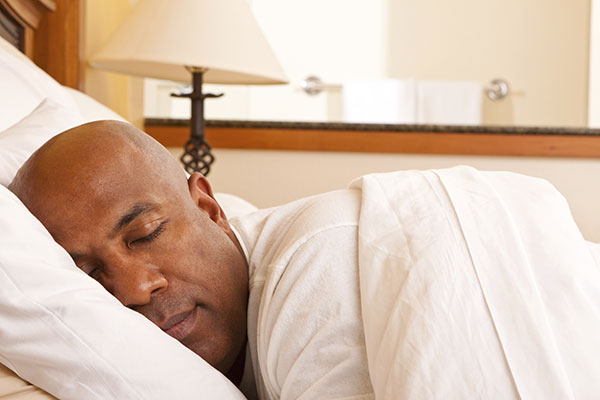A new study has found that people aged 50 or older who sleep for five hours or less at night are more likely to suffer multiple chronic diseases as they age.
This is compared with their peers who get a longer night’s rest.
The study, published in the journal PLOS Medicine, examined nearly 8,000 civil servants in the United Kingdom. The subjects had no chronic disease at age 50.
Scientists asked the participants to report on how much sleep they got during clinic exams every four to five years for the next 25 years.
For those whose sleep was tracked at age 50; people who slept five hours or less a night faced a 30 percent higher risk that they would develop multiple chronic diseases over time than those who slept at least seven hours a night.
The scientists found that, at 60, the participants reported a 32 percent increased risk and at 70, it was a 40 percent greater risk.
The diseases for which there was a higher risk included diabetes, cancer, coronary heart disease, stroke, heart failure, and chronic obstructive pulmonary disease.
Others are chronic kidney disease, liver disease, depression, dementia, mental disorders, Parkinson’s, and arthritis.
The study, its researchers pointed out, didn’t find that those who slept longer than nine hours had health problems.
“Short sleep duration in midlife and old age is associated with a higher risk of the onset of chronic disease and multimorbidity,” it concluded.
“These findings support the promotion of good sleep hygiene on both primary and secondary prevention by targeting behavioral and environmental conditions that affect sleep duration and quality.”
Sharon Cobb, a sleep researcher, said the results give more evidence that sleep and chronic conditions are linked.
“I think for a long time, we’ve stressed that you need your sleep,” said Cobb, who is an associate professor at the Mervyn M. Dymally School of Nursing at Charles R. Drew University of Medicine and Science in Los Angeles.
“But now we’re starting to really push forward. There’s more literature coming out that sleep can affect more than just mental health. It’s also affecting more comorbidities.”
Copyright 2024 TheCable. All rights reserved. This material, and other digital content on this website, may not be reproduced, published, broadcast, rewritten or redistributed in whole or in part without prior express written permission from TheCable.
Follow us on twitter @Thecablestyle

